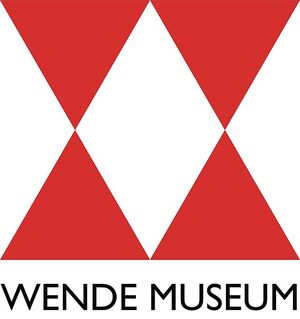Thomas Mann House Events Archive
September 2022
Transatlantic Media Forum - Democracy Disputed: Ever More Divided?
New York, NY

Information
Whether it is the war in Ukraine, Covid-19, or climate change -- crises seem to have become the norm in our globalized, digitally-connected world. This state of global uncertainty is accompanied by the widespread perception of an increasingly divided society. According to critical observers, this division manifests itself primarily in the ever-increasing polarization of public discourse.
The "Transatlantic Media Forum" is a one-day German-American gathering of fifteen renowned experts and journalists in New York City by 1014 and the Institute for Media and Communication Policy (IfM), in collaboration with the M100 Sanssouci Colloquium and with generous support from Stiftung Mercator. Across three "Strategic Roundtables", the format allows for in-depth deliberations wherein we will discuss the media and techno-economic mechanisms that cause and perpetuate each of these crises - regardless of their respective content. How can we achieve resilience under these conditions?
Christoph Bieber, research professor at the Center for Advanced Internet Studies, Bochum, Germany will deliver his opening remarks on Division everywhere? at the conference on September 8th at 11.10 a.m. (ET).
For the full program and more information, go to the conference website.
Parters
The event is organized by 1014 and the Institute for Media and Communication Policy (IfM), in collaboration with the M100 Sanssouci Colloquium and with generous support from Stiftung Mercator.

On the Dimensions of Public Interest Design
Online

Information
The work of city planners and architects worldwide has come under pressure. A lack of affordable housing, climate change and migrant movement challenge the traditional image of the architect as designer of objects in the built environment.
The term Public Interest Design expands the practice of architecture and design towards a multidimensional process that addresses issues such as disaster preparedness and recovery, scarcity of food and water as well as shelter. During her Fellowship at the Thomas Mann House, the architecture journalist and author Friederike Meyer explores how planning structures and strategies can support new forms of living together in changing heterogenous societies.
Sergio Palleroni, director of the Center for Public Interest Design in the School of Architecture at Portland State University and Thomas Mann Fellow Friederike Meyer discuss how architects and planners can re-engage with society to meet the needs of increasingly diverse communities and how public interest design can create a healthy, resilient and sustainable living environment.
A recording of the conversation will premier on our YouTube channel on 10th of September at 10 am (PT).
Participants
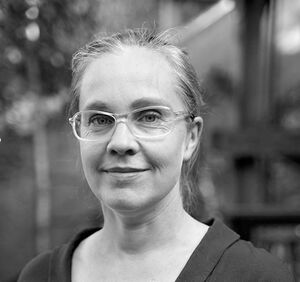
Friederike Meyer studied architecture at the RWTH Aachen and at the University of Washington in Seattle and was trained at the Evangelische Journalistenschule in Berlin. Today, she works as an architecture journalist in Berlin exploring the intersection of architecture, urban planning and society. From 2000 to 2017 she was editor of the architecture journal Bauwelt; for several years she has been working as an author, moderator and lecturer for architectural communication. Since 2017 Friederike Meyer has been editor-in-chief of BauNetz Meldungen. Together with Doris Kleilein she coedited “Die Stadt nach Corona” and “Post-pandemic Urbanism” published at Jovis, 2021.

Sergio Palleroni is Professor and director of the Center for Public Interest Design in the School of Architecture at Portland State University and co-founder of PSU's Homelessness Research & Action Collaborative. He also serves as a Senior Fellow of the Institute for Sustainable Solutions and is a founding member and faculty of the federally funded Green Building Research Lab at Portland State University. He received his M.S. in Architectural Studies from the Massachusetts Institute of Technology. His research and fieldwork for the last two decades has been in the methods of integrating sustainable practices to improve the lives of underserved communities worldwide.
Televised Democracy: Media and Politics in an Attention Economy
Los Angeles, Thomas Mann House
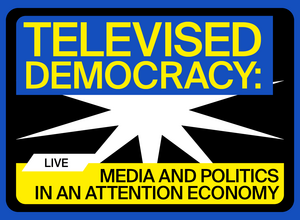
Information
In his recent op-ed piece for the New York Times, journalist Ezra Klein warns that when the border between entertainment and political discourse becomes blurred, entertainers might be the only ones able to fulfill our expectations for politicians and coverage of political events might become “entertainment packages.” Prominent examples can be found throughout history and across political camps, such as the presentation and setting of Volodymir Zelensky’s video addresses, Donald Trump’s background in reality TV, and the serial style and format of the recent news coverage of the January 6th hearings. In an attention economy, methods of production and writing in audiovisual media leave their mark on the way political debate is presented to the public. From the first televised presidential debates to famous actors-turned-politicians such as Ronald Reagan or Arnold Schwarzenegger, media technologies and their use within the entertainment industry have always shaped and influenced public discourse and the way in which politicians have made use of these media environments.
2022 Thomas Mann Fellow Christoph Bieber, Professor for Political Science at the Center for Advanced Internet Studies in Bochum, and U.S. television producer and writer Stephen Engel will engage in a conversation about how political debate is narrated and presented in a rapidly changing political public sphere. Political actors rely on routines, formats, and narratives originally developed in entertainment media, not only during campaign season, but also within everyday political processes such as plenary sessions or committee hearings. By analyzing and discussing different media formats and historic examples, the discussion will explore the benefits and pitfalls of the entanglements between the entertainment industry and political discourse. The conversation will be facilitated by Lorraine Ali, television critic at the Los Angeles Times and award-winning journalist, who has written in publications ranging from the New York Times to Rolling Stone.
In person event at the Thomas Mann House. By invitation only.
Participants

Lorraine Ali is television critic of the Los Angeles Times. Previously, she was a senior writer for the Calendar section where she covered culture at large, entertainment and American Muslim issues. Ali is an award-winning journalist and Los Angeles native who has written in publications ranging from the New York Times to Rolling Stone and GQ. She was formerly The Times’ music editor and before that, a senior writer and music critic with Newsweek magazine. Her writing awards include Best Online Feature from the New York Association of Black Journalists in 2007, an Excellence in Journalism Award in 2002 from the National Arab Journalists Association. In 1996, she won Best National Feature Story honors at the Music Journalism Awards.

Christoph Bieber is Professor of Political Science at the NRW School of Governance, University of Duisburg-Essen, Germany. His main area of research is ethics in political management and society. Bieber has published widely on the effects of online communication for political actors, a special focus is addressing the effects of digitalization for the U.S. political system. Since 2018, he has been delegated to the Center for Advanced Internet Studies (CAIS) in Bochum, where as a research professor he directs the program “Digital Democratic Innovations“ that runs from 2021 until 2026. On Twitter he is known as @drbieber.
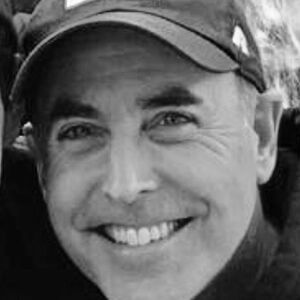
Stephen Engel is a U.S. television producer and writer. A graduate of Tufts University, Engel continued his education at NYU and earned a law degree. While working as an attorney, he spent his nights and weekends writing screenplays, leading to assignments for producers such as Steven Spielberg and Joel Silver. Engel went on to write for many TV series, including The Big Bang Theory, Just Shoot Me, Mad About You and Dream On. Engel also created and executive produced CBS’s Work With Me, starring Nancy Travis and Kevin Pollak; NBC’s Inside Schwartz, starring Breckin Meyer; and ABC’s The Big House, starring Kevin Hart. In addition, he teaches TV writing at the UCLA School of Theater, Film & Television.
Watch here
The Politics of Memory: Contested Cultures of Remembrance
Wende Museum (10808 Culver Blvd., Culver City, CA 90230)
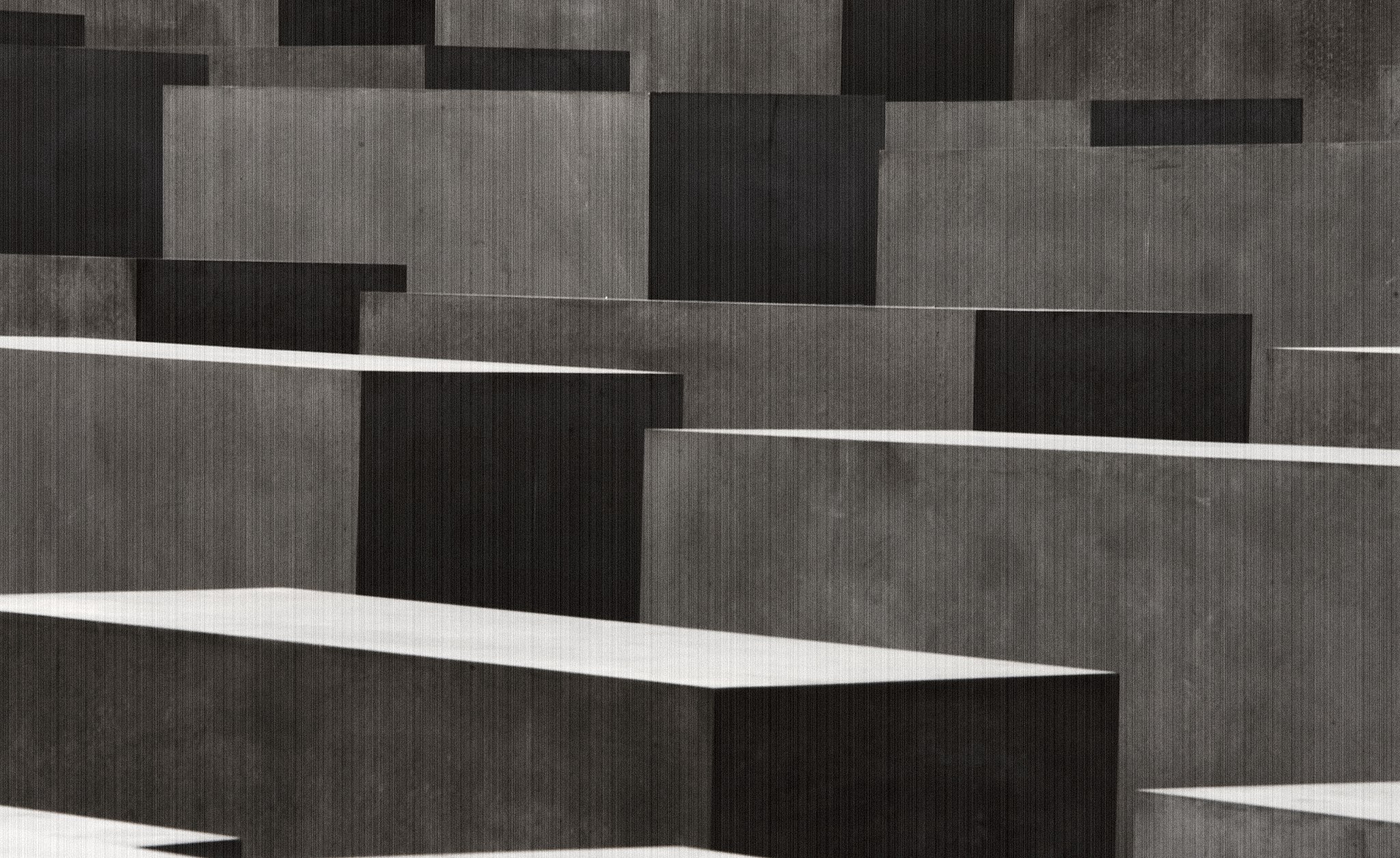
Information
"Memory culture" (German Erinnerungskultur) is a central concept in current debates about the ways Germans remember, commemorate, and historicize the era of National Socialism and its aftermath. The term relates to the question whether Germany has largely accepted responsibility for and learned from its past crimes. From school education and memorials to art monuments, films and public discourses, the idea of an active and successful memory culture plays an important role in contemporary German discourses, for instance about a post-Berlin Wall united identity for Germany after 1989. While many international voices praise Germany’s self-reflexive commemoration of its national trauma, a new generation of German-Jewish artists and intellectuals raise an important point of critique: What if Germany’s culture of memory is merely a "theater of reconciliation"? Whom does this form of remembrance actually serve, and to what end?
German poet Max Czollek, who writes about contemporary Jewish life in Germany, argues that German memory culture created a "symbolic Jew" as a counterfigure to a German "we." According to him, Germany is mistaking remembrance for reconciliation, with the recent rise of racist and anti-Semitic violence and right-wing populism as a consequence. For Czollek, a functioning and productive culture of memory must confront its “fantasies of homogeneity,” question concepts of national greatness, and include contemporary minority voices into its discourse.
Yasemin Yildiz, Professor at the Department of European Languages and Transcultural Studies at the University of California, Los Angeles, engages with questions of German memory culture from another angle. She is currently working on the book project Memory Citizenship: Migrant Archives of Holocaust Remembrance, co-authored with Michael Rothberg, in which she explores the effect of transnational migration on German cultural memory relating to National Socialism, the Holocaust, and World War II, opening up new ways of conceptualizing the relationship between memory and migration at present.
Max Czollek and Yasemin Yildiz will engage in a conversation around cultures of remembrance: What new perspectives and critiques do minority discourses offer on the questions and debates surrounding contemporary German memory culture? And what is the takeaway for those of us in the United States? How can these discussions inform our local debates and controversies about commemoration and memory practices? The conversation will be moderated by Joes Segal, Chief Curator and Director of Programming at The Wende Museum.
Participants

Max Czollek is a German lyric-poet, writer and stage performer. In 2012, he received a degree in political science from the Technical University of Berlin. In 2016, he completed his doctorate studies at the Center for Research on Antisemitism. Since 2009, Czollek has been a member of poetry collective G13, which has published books and organized lectures. His essay collection Desintegriert Euch (“De-Integrate!”) transformed the debate about the integration of minorities in Germany when it appeared in 2018. His perspective on the roles of contemporary Jews in German society and its “theater of memory” struck a nerve not just among Jews, but other minority groups as well.
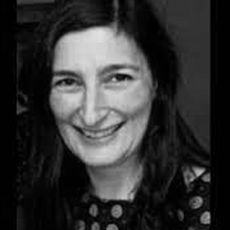
Yasemin Yildiz is Associate Professor of German and Comparative Literature at the University of California, Los Angeles. Her research areas include Twentieth- and Twenty-First Century German Literature and Culture; Literature of Migration; Turkish-German Literature; German-Jewish Literature; Literary Multilingualism and Translation Studies; Gender Studies; Memory Studies; and Holocaust Studies. Prof. Yildiz is the author of Beyond the Mother Tongue: The Postmonolingual Condition (2012). Her current book project Memory Citizenship: Migrant Archives of Holocaust Remembrance, co-authored with Michael Rothberg, assembles and analyzes a wide range of memory work by Germany-based immigrant writers, artists, and activists relating to National Socialism, the Holocaust, and World War II.
Partner
The Event is a collaboration between the Wende Museum & the Thomas Mann House.
